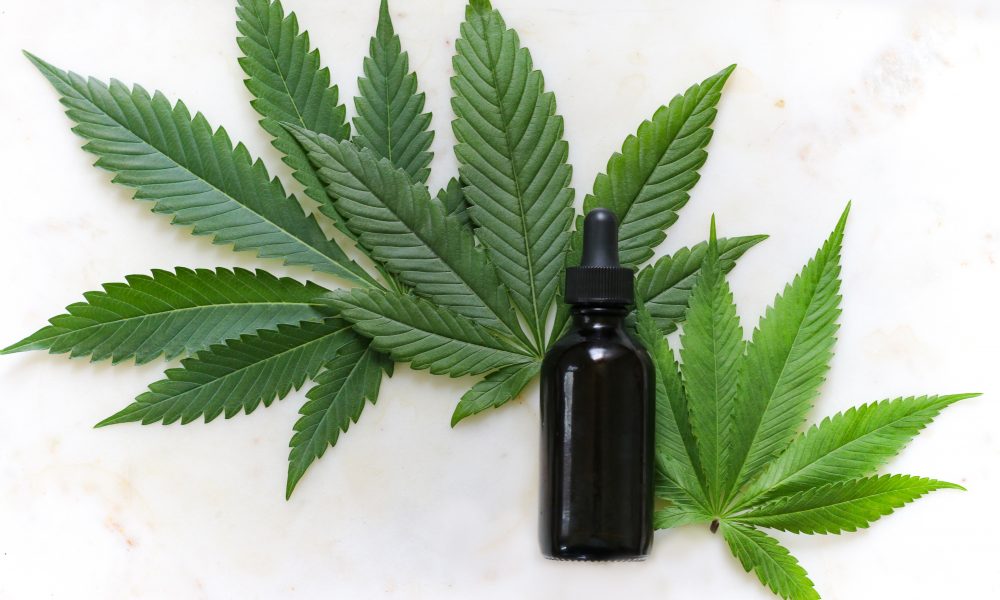A new study aimed at investigating the effectiveness of CBD as a treatment for crack use disorder found that people who took the cannabinoid had better health and well-being compared to those who took traditional medication. It was found that there were fewer adverse health events.
“The main implications of this study show that CBD is a powerful and promising therapeutic tool for patients with CUD,” said the report, published this month in the International Journal of Mental Health and Addiction. “CBD appears to alleviate the main symptoms reported by participants, including loss of appetite, difficulty reducing crack use, and poor health.” It stands out for causing mild adverse events, which are the main symptoms associated with its use.”
The study was a double-blind, randomized controlled trial that compared CBD to three drugs commonly used to treat crack use disorder: fluoxetine, valproic acid, and clonazepam.
“CBD is a safe and well-tolerated product with significantly fewer adverse events compared to the control group,” the authors concluded. “The CBD group outperformed the control group on many parameters, reduced crack use, did not reduce food intake due to crack use, and had significant improvements in self-rated health.”
Participants were Brazilian adults aged 18 to 65 who had used crack regularly in the past year, had used it at least 20 times in the past month, and had a willingness or intention to treat a use disorder. Although many of the participants were polydrug users, crack was their “main drug,” according to both the participants and the research team.
Overall, 25 people completed the study. Fifteen people were in the CBD group and 10 were in the control group who received more conventional treatment. Most of the 90 people who initially met eligibility criteria did not return to complete the full protocol.
Among those who completed the full study, “no significant differences were found in reductions in crack use” between the control and CBD groups, meaning the two treatments were similarly effective. It shows that it is possible. Similarly, no significant differences were observed between the two groups regarding self-reported craving for crack.
However, CBD’s side effects were much milder than traditional treatments.
The researchers found that, “There were significant differences between the CBD group compared to the control group, with CBD There were fewer symptoms in the group.” ”
The researchers noted that fewer side effects from CBD meant participants were more likely to continue with treatment.
The research team concluded that the side effects of pharmaceutical treatments can be very unpleasant and could “result in poor adherence to treatment among people with CUD in health services, facilitating wider access to CBD.” writing.
22 authors behind new works study It represents academic and public institutions in Brazil, including various departments of the University of Brasilia, the Brazilian Federal District Health Secretary and Institute of Forensic Medicine, and the Federal University of São Paulo.
They explained that the “mechanism of action” behind CBD is “difficult to outline” because the cannabinoid “has a wide range of pharmacological properties that affect multiple targets.”
On the other hand, “acting on multiple targets appears to be important for exerting broad therapeutic properties,” the researchers continued. “CBD reduces endocannabinoid receptor signaling and inhibits fatty acid amide hydrolase. This may reduce cravings and lower relapse rates in CUD patients.”
The research team said future studies should focus on increasing the sample size of similar trials and introducing more rigorous screening and monitoring of participants.
“Additionally, by implementing strategies to support these people by reducing stress and environmental factors while improving emotional regulation, and by using other cannabinoid compositions (such as full-spectrum CBD and/or THC), These effects may be enhanced,” the researchers said. “If so, this would be an important advance in the pharmacological treatment of stimulant use disorder.”
Previous studies have looked at cannabinoids as a treatment for stimulant use disorder, with most focusing on cocaine or amphetamine use.
For example, a 2020 meta-study that compiled 14 studies on animal subjects ingesting cocaine found that CBD appears to have many effects in reducing addictive behaviors.
Although not all of the studies under review were consistent with each other and the researchers emphasized the need for human trials, the study’s authors found that animal studies generally showed that CBD was more effective than self-administered cocaine. He said that it has been shown to be able to alleviate many symptoms of addiction.
A 2019 study conducted in Spain similarly concluded that CBD is a “promising candidate” for stimulant abuse disorders, including cocaine, amphetamines, and methamphetamines.
Schumer and other Democrats push for marijuana reform ahead of April 20, saying lawmakers should celebrate ‘every day’
Photo provided by: Kimsey Nanny.
